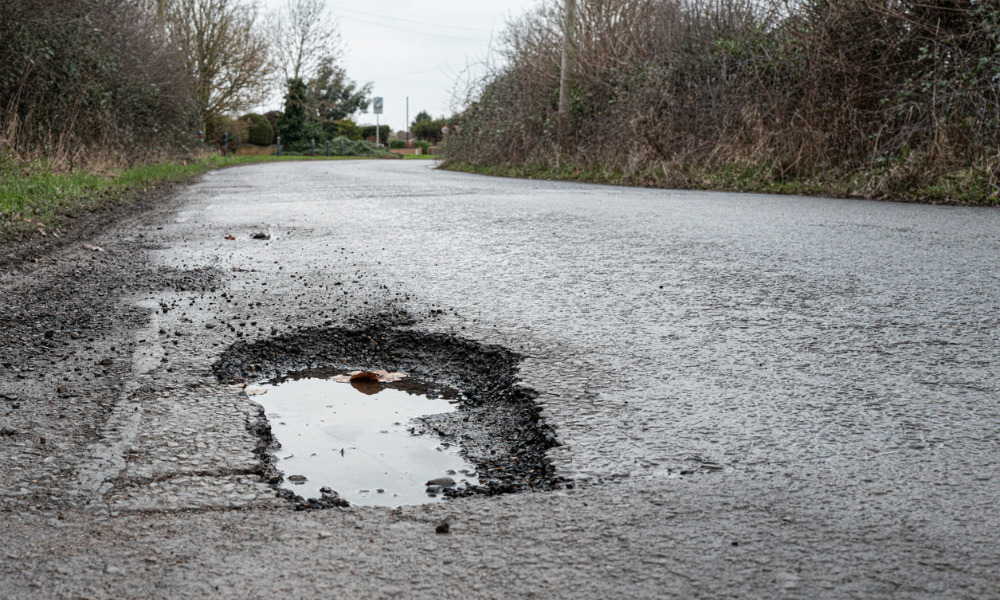
The lawsuit claimed that a pothole caused an accident that resulted in catastrophic injuries

The Ontario Superior Court of Justice dismissed a $10 million negligence lawsuit against the Town of Milton, finding no genuine issue requiring a trial to prove that a pothole caused a motorcycle accident.
On May 3, 2020, George Fadler lost control of his motorcycle near a Milton shopping plaza, resulting in catastrophic injuries. Fadler and his family alleged that a pothole on the road outside the plaza caused the accident, leading them to sue the Town of Milton for over $10 million in negligence.
Milton moved for summary judgment, arguing that the road was in a state of repair and that Fadler’s driving caused the accident. The plaintiffs responded that the motion was premature as they had not yet discovered the case and that their evidence raised a triable issue.
The Superior Court considered several issues, including whether Milton’s motion was premature, the admissibility of the plaintiffs’ hearsay evidence, and whether Milton failed to keep the road in a reasonable state of repair. The court ultimately dismissed the plaintiffs' claim, finding that they failed to show a genuine issue requiring a trial to prove Milton’s negligence.
Fadler, an experienced motorcyclist, exited the Milton Common shopping plaza on Thompson Road South when he lost control of his motorcycle and crashed. The plaintiffs alleged that a pothole was the cause.
Milton defended the action, and the claim against Canada Life Assurance Company, which owned the plaza, was discontinued. Milton assumed liability for any negligence by the road repair company.
In the legal framework, the court must determine if there is a genuine issue requiring a trial. The plaintiffs argued that the motion was premature due to incomplete discoveries, but the court rejected this, stating that the plaintiffs had ample time to seek discovery steps and had not done so.
The court found that the plaintiffs’ evidence failed to prove that the road was not in a reasonable state of repair or that the alleged non-repair caused the accident. Furthermore, the court found no evidence of an obvious deficiency or unreasonable risk created by the pothole.
The court accepted Milton’s expert's conclusion that Fadler’s high speed and inadequate handlebar control caused the accident. The court found that the plaintiffs did not challenge the admissibility of the expert’s opinions and did not provide sufficient evidence to prove causation.
Even if Milton had been found negligent, the court noted that the regulations established a minimum standard that Milton met. The pothole’s depth was less than the 8 cm deemed acceptable under the regulations. The court dismissed the plaintiffs' claim and ordered them to pay Milton’s costs.